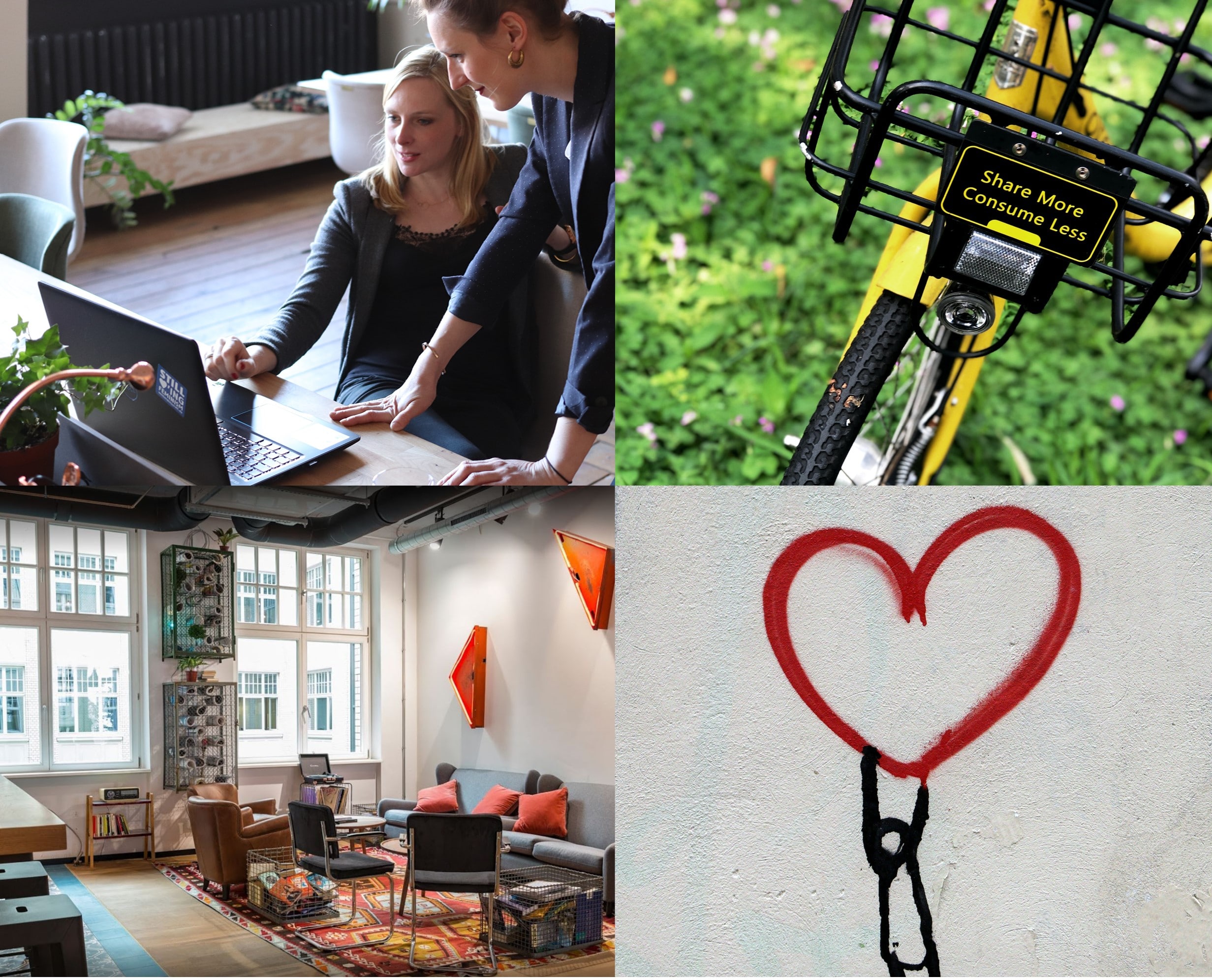
My 5 theses for the future of work
By Axel Praus.
What does working in the year 2025 look like? Since physical travel is not an option at the moment, I went on a time travel to the working world of the future. I have packed my thoughts into five theses for you to think about. One thing I can already say now – for me, in five years’ time, the working world will be more digital, human, social, healthier, and self-determined.
Thesis 1: The office is a place for community, identification and inspiration
The office brings people, experiences, ideas and emotions together. In the future, the office will no longer be considered as standard workplace, but as a valuable place that people consciously choose to be. Be it to work together with colleagues on projects, to share experiences, to learn from others or simply to meet and exchange ideas. The success of this “office of the future” will essentially be driven by the fact that employees perceive and appreciate a personal value, a benefit for themselves. Offices will allow companies to offer their employees a “safe place” where this special company spirit and appreciation are tangible. This newfound freedom in the office of the future should inspire people to think outside the box and experiment together.
Thesis 2: Health and satisfaction will become more important than status and wealth
Health and satisfaction are probably the most valuable human goods. This awareness is increasingly becoming the focus of employees today. In the future, companies will see themselves obliged to anchor mindfulness as an important asset in their corporate goals. The promotion and ongoing maintenance of mental health, resilience and wellbeing through an appreciative corporate and management culture that values humanity as a focus topic, will become a crucial aspect. At the same time, topics such as: ergonomics, low-emission environments, optimal room climate, healthy range of food, sports facilities, and hygiene measures enabled through a sustainable and ethical overarching attitude of the company are gaining in importance. The success or failure of the activities will not depend on how much is offered, but on how genuine and authentic the human related focus is anchored in the corporate culture and in the mindset of the managers.
Thesis 3: The social contribution increases the shareholder value of a company
In the future, companies that make a contribution to society will enjoy an even higher public reputation and thus be more attractive for investors, partners and consumers. On the one hand, this is about social and ecological sustainability along the entire value chain of a company, but also about giving employees time to get involved in their personal social projects and or concerns. Regardless of whether this relates to the care of the elderly in the family or local neighborhood, or in general commitment to those in need or in ecological projects. Companies that allow their employees time to get involved in these kinds of social contributions increase their appreciation both internally and externally.
Thesis 4: We will have a diverse range of decentralized work locations
The choice of where we will work in the future will be determined by the way we work, personal preferences and general conditions as well as the need for a sense of community. In the future, remote working can become the preferred place for “normal” everyday work. Thanks to virtual communication, both teamwork and concentrated work in a different place than the office is no longer an obstacle. If home does not function as a place of work, a co-working office in the immediate vicinity, which can be used flexibly at any time, might offer a good alternative. Co-Working spaces are no longer only found in large cities but are also spreading to the countryside. The employee may travel to the company’s own office as required to meet colleagues, exchange ideas, work creatively in a team or take part in an inspiring knowledge event. The benefit to the employee is the freedom of choice to choose the place of work that will best suit his or her needs depending on the specific task to be achieved.
Thesis 5: Empathy is the main characteristic of a successful leader
In the coming years, the emotional competence of the manager will be even more decisive for the success or failure of a team. Teams that no longer work together in one place need a manager who understands and takes into account the needs and requirements on both a rational and emotional level. Especially in a working world that is strongly characterized by virtual cooperation, an employee will not feel loyal to the company if the management does not offer an adequate framework. In the physical world, a leader’s empathic weaknesses can be compensated for by team cohesion – in the virtual world, the influence of this weakness can hardly be compensated for. In a working world strongly characterized by virtual collaboration, an employee’s loyalty will be tested if the management does not offer an adequate support network of emotional competence.
CONCLUSION: In 5 years, the working world will be more digital, human, social, healthy and self-determined.
 Get in touch
Get in touch